Blessing Ceremony Conducted by H.H. Karmapa
H.H. the 17th Karmapa graced the Great Compassion Bodhi Prajna Temple by conducting a blessing ceremony, ground breaking for future buildings and laying the foundations for Buddha stupas
At 1:45 PM, June 8, 2017, H.H. the 17th Karmapa Ogyen Trinley Dorje graced the Great Compassion Bodhi Prajna Temple, which is set within a tranquil forest north of Toronto, Canada. Under the guidance of the abbess Master Miao Jing, the lay practitioners respectfully lined alongside the secluded path full of fresh flowers, with their hands holding up white khatas, waiting wholeheartedly for the arrival of H.H. the 17th Karmapa Ogyen Trinley Dorje. The sky was crystal blue with a gentle breeze and the soothing sounds of insects and birds. The surroundings displayed a sense of auspiciousness.
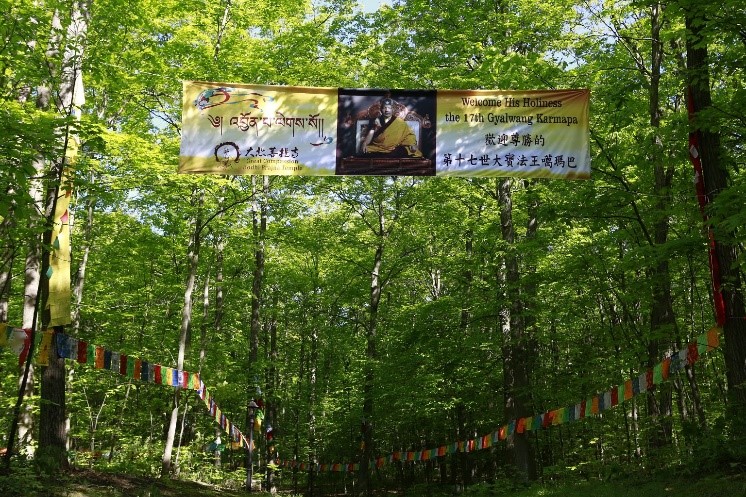
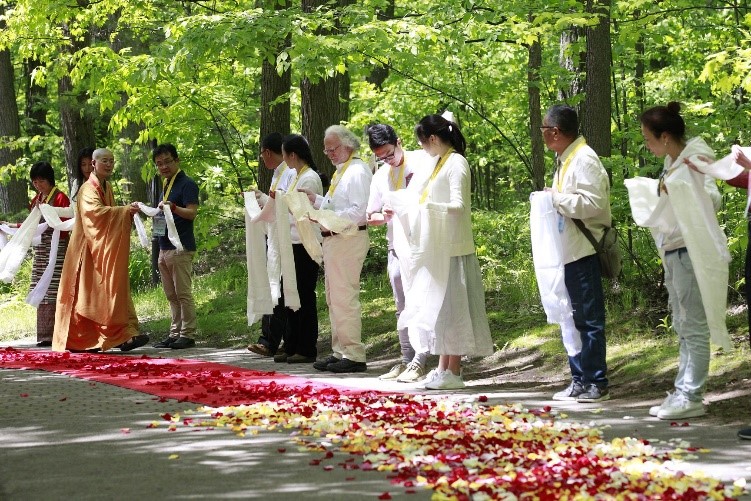
At the entrance gate, H.H. the 17th Karmapa pleasantly stepped out of the car. The temple abbess Master Miao Jing and Master Miao Yin welcomed the 17th Karmapa with most respect and formal Buddhist tradition in welcoming their root guru. Master Miao Jing accompanied the 17th Karmapa entering the main Buddha hall, and the abbess Master Miao Jing and Master Miao Yin followed the Tibetan Buddhist tradition by offering the Mandala of body, speech, mind, activities, and merit to H.H. the 17th Karmapa, wishing for blessing, wisdom, knowledge, the longevity of H.H., and the prosperity of the Buddhist enterprise, so as to benefit all sentient beings.
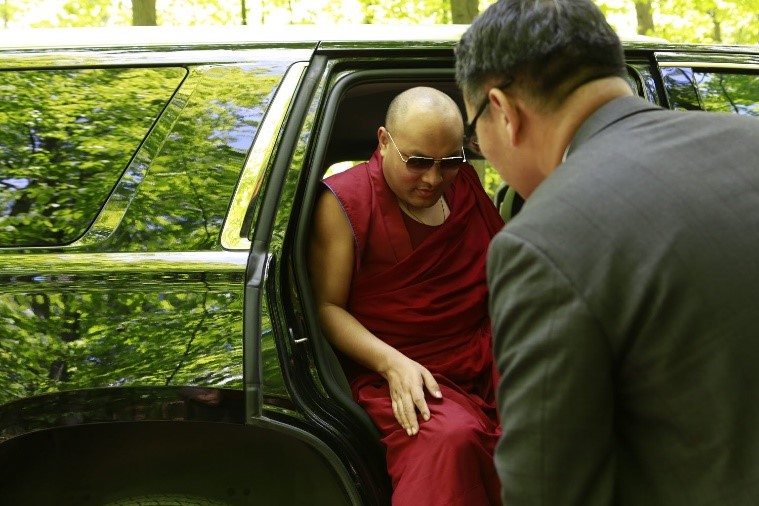
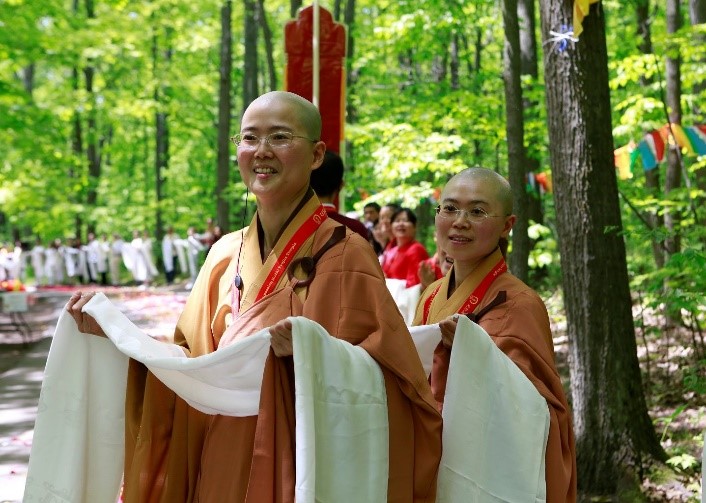
In his address, H.H. the 17th Karmapa emphasized that he was overwhelmed with delight to pay a visit to the Great Compassion Bodhi Prajna Temple, the first ever temple perfectly integrating the different branches of Mahayana Buddhism and Tibetan Buddhism. H.H. the 17th Karmapa opined, “Even though my stay here is not long, it means a lot to me, and the meaning is significant. The reason is that the two Masters, who take charge of this temple, have profound understanding of different branches in Buddhism, namely Mahayana Buddhism and Tibetan Buddhism. What’s better is that they ingeniously fuse various ideas together. I am quite convinced that everyone, under their teachings, will be able to experience joy through various Buddhist lineages and bring harmonious joy into each Buddhist family. In this way, everyone will learn more about various strands of Buddhism, enjoy more happiness, and more complete wisdom.” After the speech, H.H. the 17th Karmapa gave his heartfelt blessings to the temple. H.H. shared his joy and the significance of his coming to the Great Compassion Bodhi Prajna temple with more than thirty people in the main Buddha hall including the lamas of H.H.’s entourage, abbot Masters from other Canadian Karma Kagyu centres, representatives from Kagyu lineage centres in the U.S. and Hong Kong, and temple lay representatives.
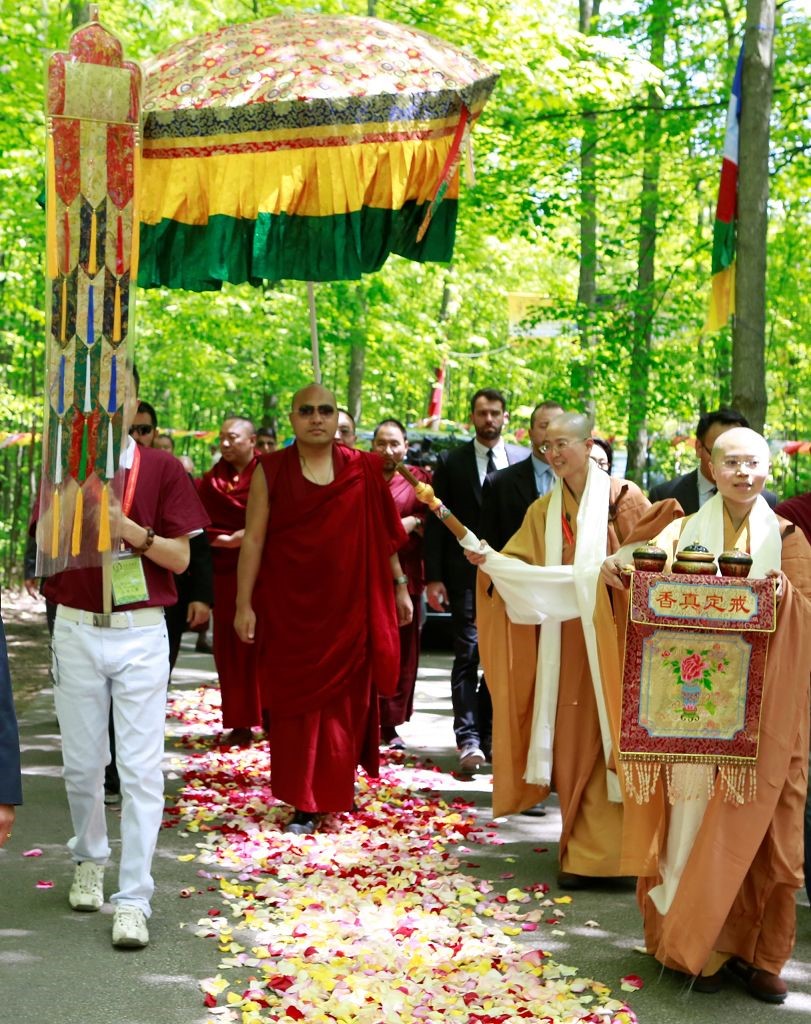
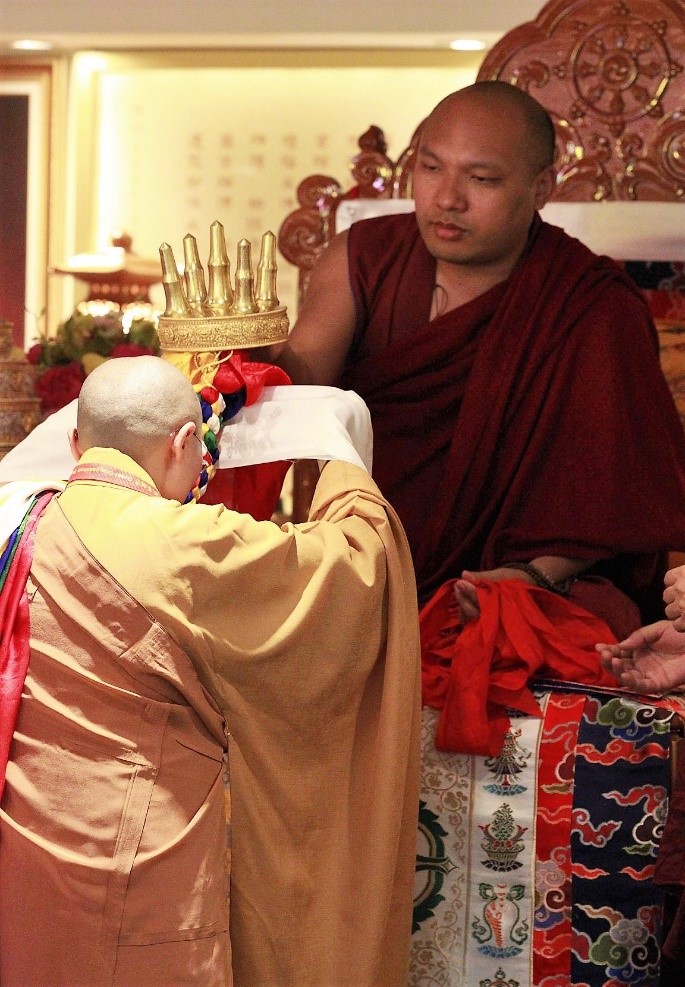
The abbess Master Miao Jing expressed gratitude toward her root guru, H.H. the 17th Karmapa for his presentation to the temple. Furthering H.H. the 17th Karmapa’s support for Bhikkhunis (the women who take the Buddhist full ordination vow as nuns) and with H.H.’s guidance, the two Masters officially announced that, after years of planning and under the guidance and approval of H.H. the 17th Karmapa, the “North America Karma Kagyu Bhikkhuni Institute“ was officially established on June 8th , 2017 in Ontario, Canada. Establishing this organization is helping to fulfill H.H. the 17th Karmapa’s wish to support the activities of Buddhist nuns. The main objective of the institute is, under the guidance of H.H. the 17th Karmapa, to support the revival of the full vow ordination of Tibetan Buddhist nuns, and to help establish a complete education system for Buddhist nuns and those women aspiring to become Buddhist nuns. The Great Compassion Bodhi Prajna Temple, being the first Mahayana-Tibetan fusion Buddhist nunnery centre carrying the Karma Kagyu lineage in Canada, has an extraordinarily significant historic importance.
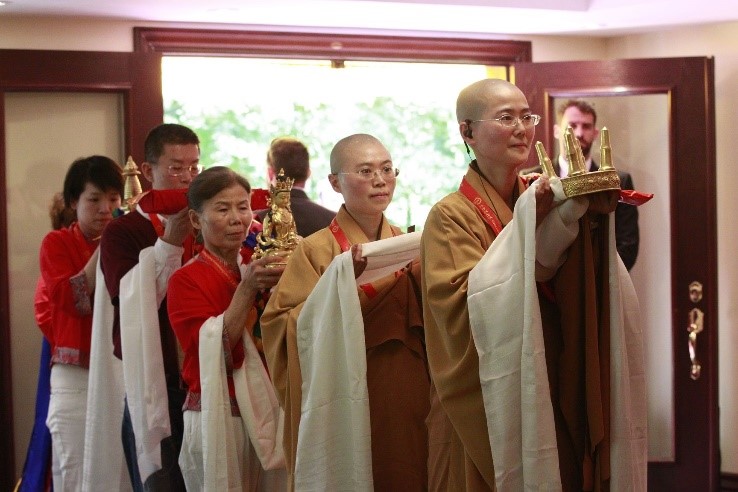
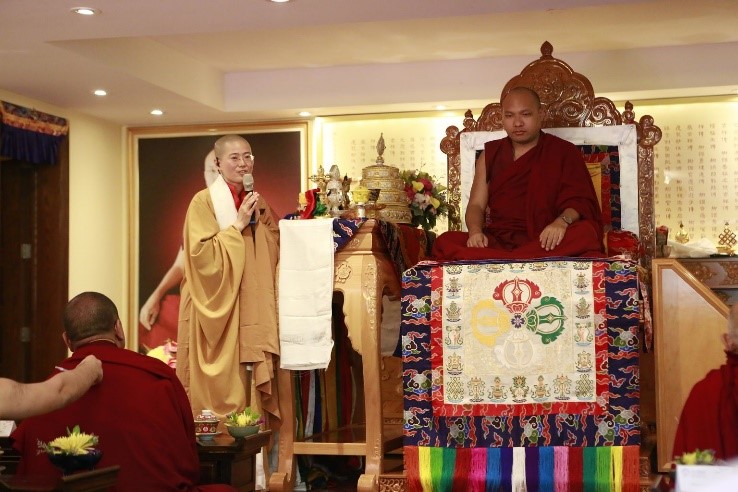
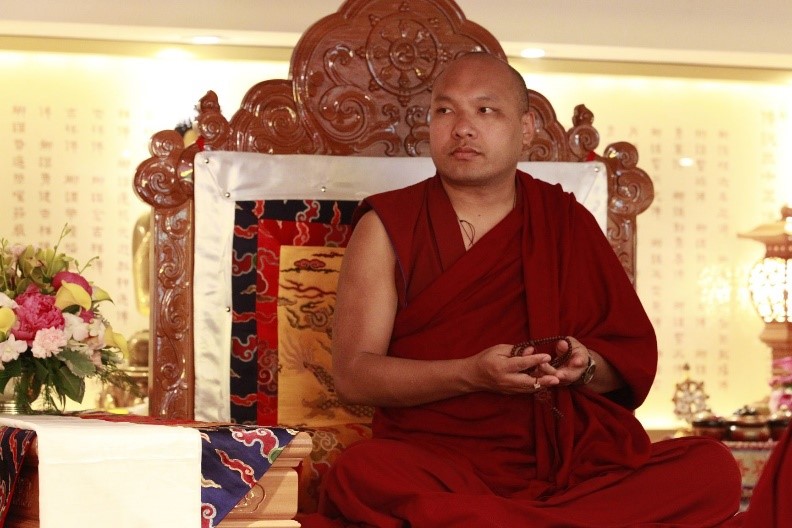
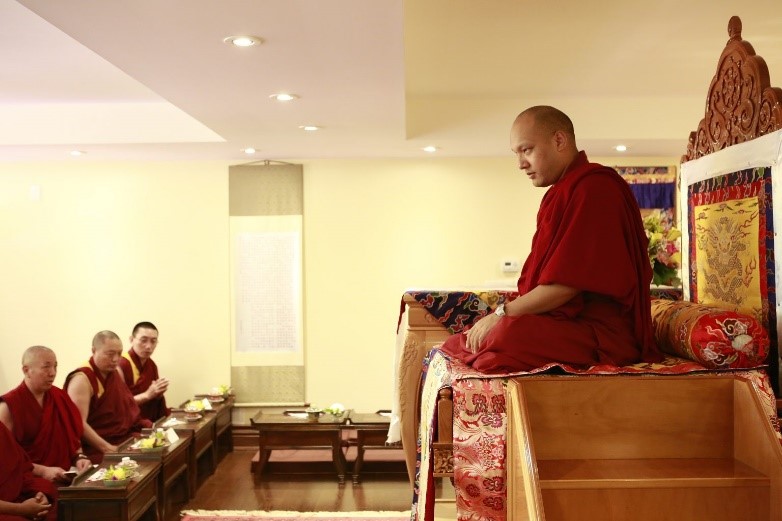
Canada is a multicultural nation and places emphasis on equal human rights, and male and female equality. Buddhism in this nation also demonstrates multiculturalism. The Great Compassion Bodhi Prajna Temple is a temple in which Buddhism is delivered both in Chinese and English. The Masters learned their teachings from Mahayana and Tibetan Buddhism. The visit of H.H. the 17th Karmapa symbolized his support for the integration of both branches, and the Masters’ support of their root guru the H.H. 17th Karmapa’s Buddhist activities. Therefore, the visit of H.H. to the temple for the blessing and ground breaking ceremony has a historic significance. This not only showed that H.H. recognized the importance of Mahayana-Tibetan Buddhism fusion but also demonstrated H.H.’s tangible actions to support Bhikkhunis.
In an opening lecture in a ceremony several years ago, the 17th Karmapa made a vow to support nuns. He said, “As far as I am concerned, I will spare no effort to advocate the learning of nuns and the establishment of retreats for nuns so that they will have a place to cultivate themselves without worries. I am not the only one who would like to devote myself to this calling, indeed all the previous Karmapas did the same as well. Therefore, I will certainly do my part as long as I am alive.”
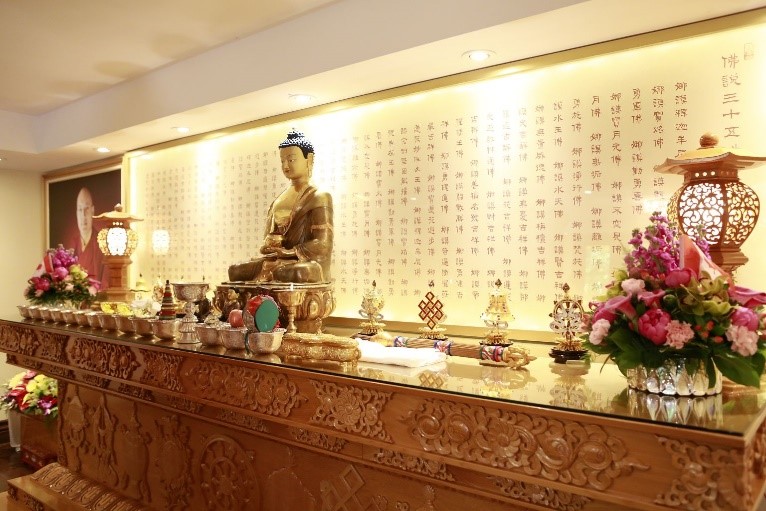
Right after the blessing ceremony at the temple, everyone present enjoyed traditional Tibetan sweet rice and tea together in the main Buddha shine room. Then H.H. the 17th Karmapa strolled out into the forest and set foot on the ancient land, which is more than 14000 years old. The H.H. 17th Karmapa sprinkled blessing rice through the air while he recited the mantras and short prayer, which was intended to bring the blessing to this land and every being here. Later, H.H. the 17th Karmapa planted a Japanese maple tree in the temple garden, wishing that it would thrive here and benefit numerous beings to come in the future.
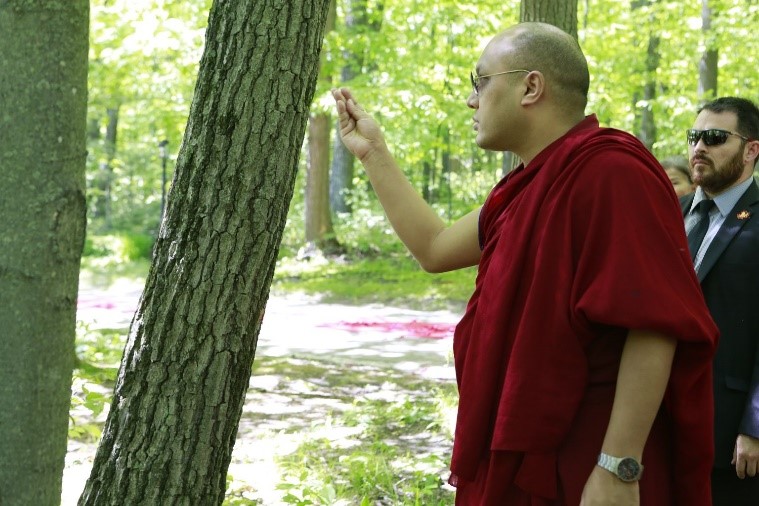
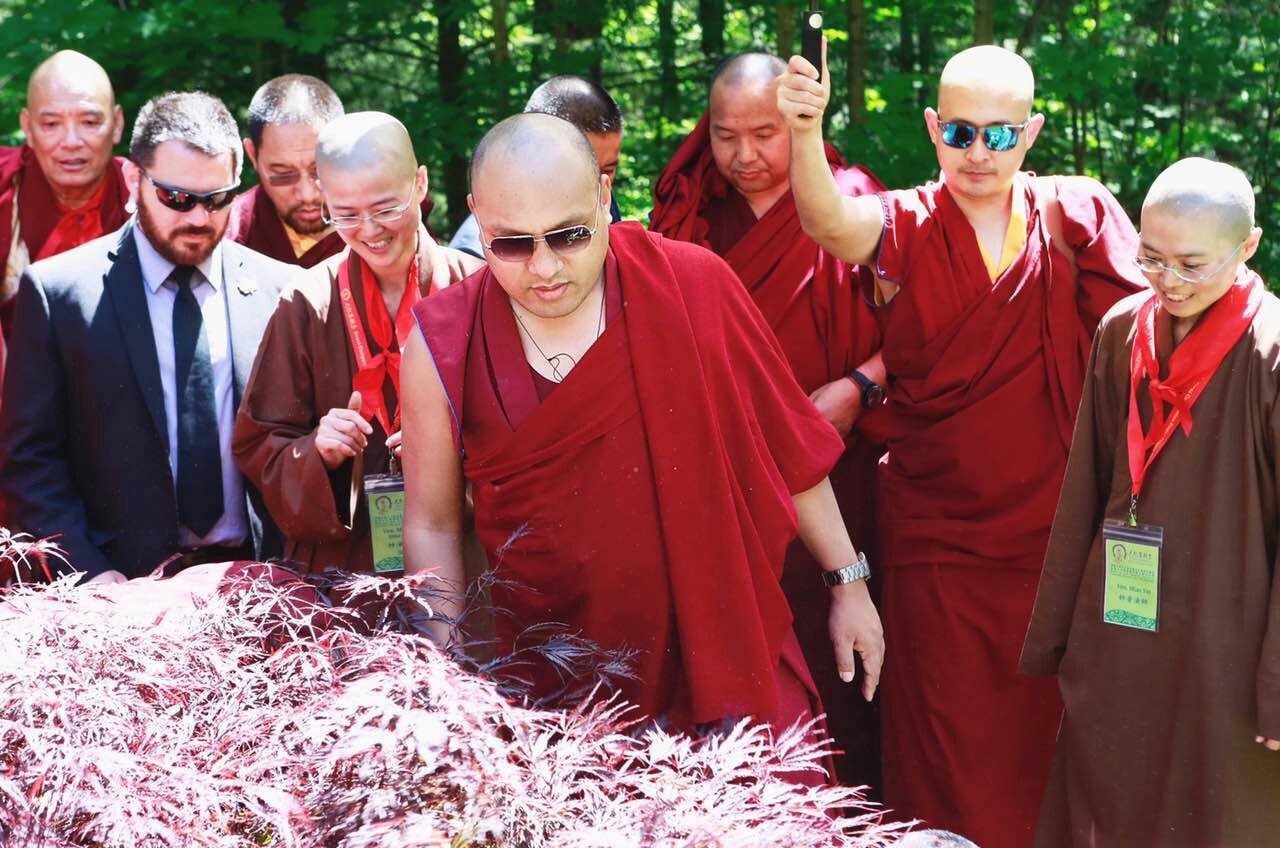
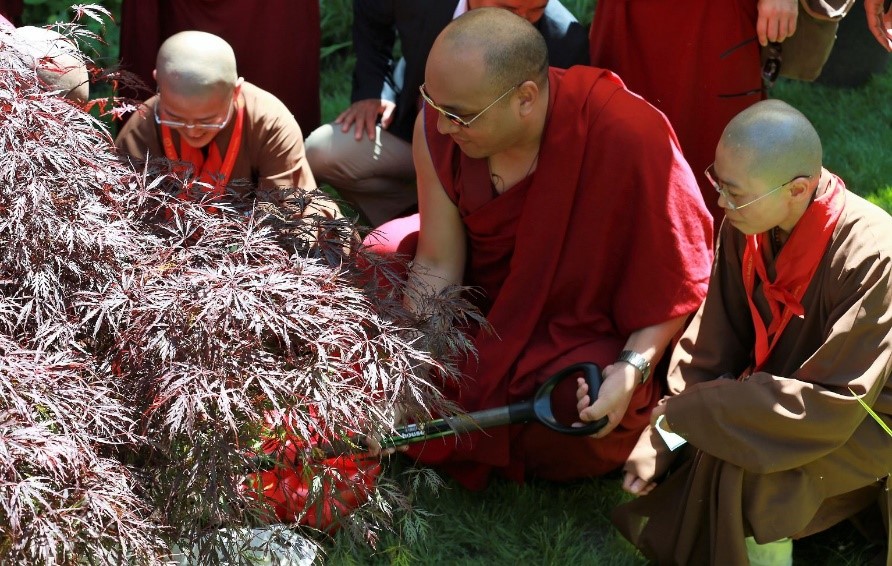
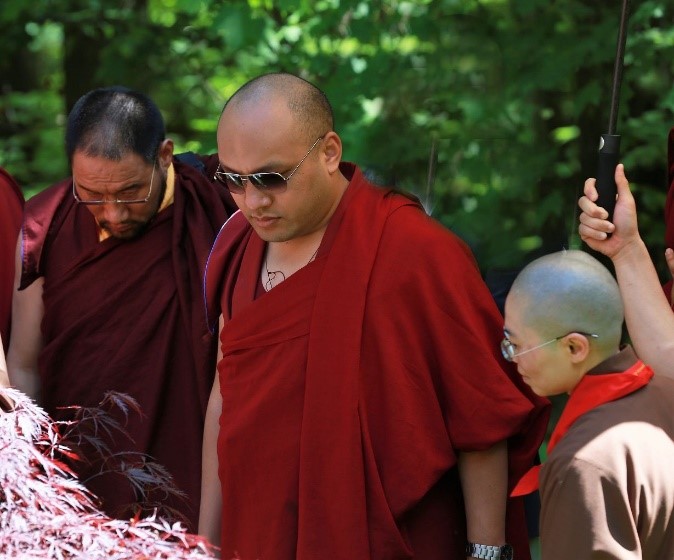
In this quiet retreat centre, H.H. the 17th Karmapa stepped onto the pavilion in the middle of the forest and gave a short talk to the lay practitioners. He noted that the forested temple was a fine and tranquil place for retreat. He then led the lay practitioners to recite the Verse of Three Refuges and explained its meanings. The ceremony went smoothly and everyone was happily blessed. After the speech, H.H. the 17th Karmapa bestowed a small Shakyamuni Buddha sculpture to the abbess Master Miao Jing to give his blessings to the temple.
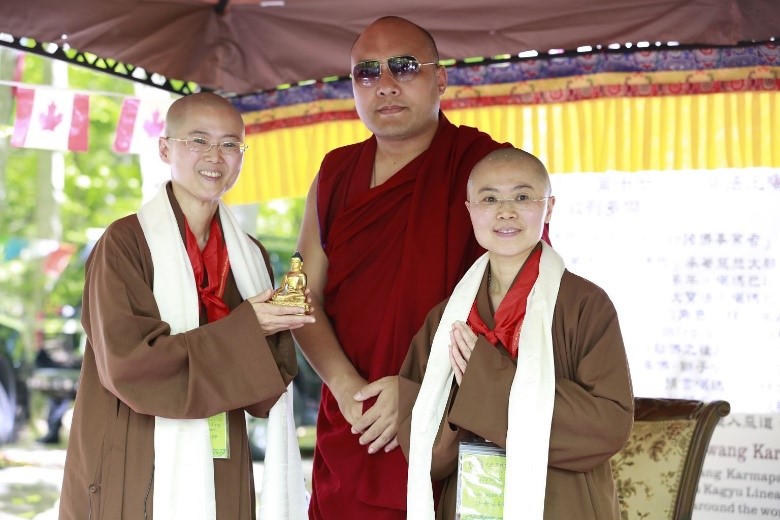

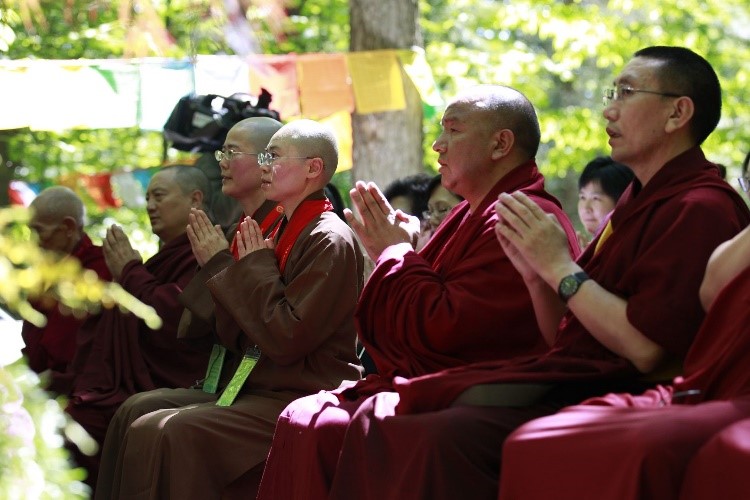
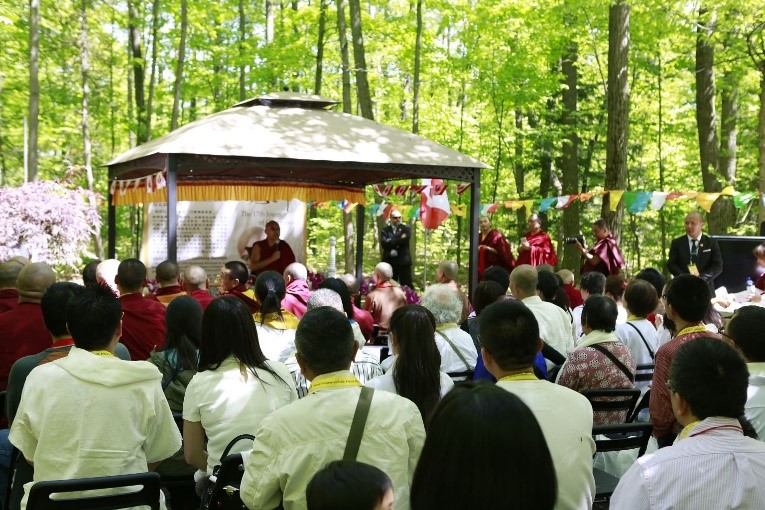
Eventually, H.H. walked to the place destined for the main Buddha hall of the temple and gave a blessing. T H.H. the 17th Karmapa relaxed and enjoyed the atmosphere of the forest. H.H. the 17th Karmapa left at around 4 in the afternoon. Every participant was very pleased and peaceful and looked forward to the next advent of H.H. the 17th Karmapa in Canada. In response to and in support for H.H. Karmapa’s guidance for Buddhist nuns’ activities, the temple is planning to organize the first Bhikkhunis’ Mahayana-Tibetan fusion conference in Toronto, Canada in the year 2018. We sincerely invite your continuous support and attention.
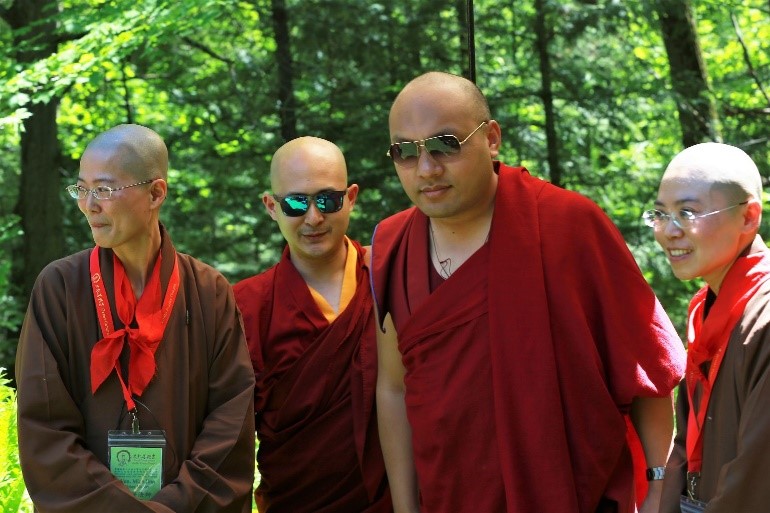
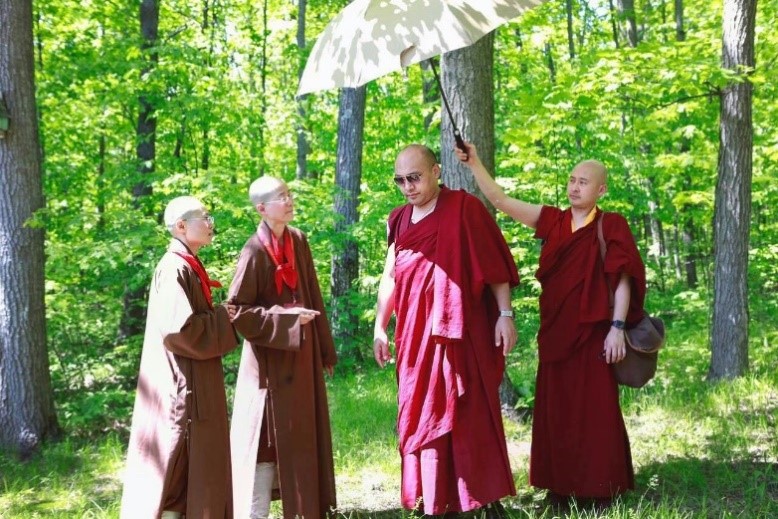
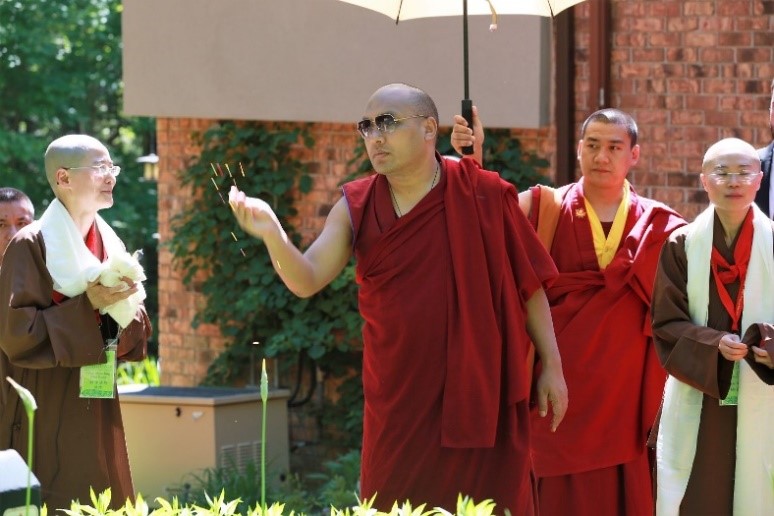
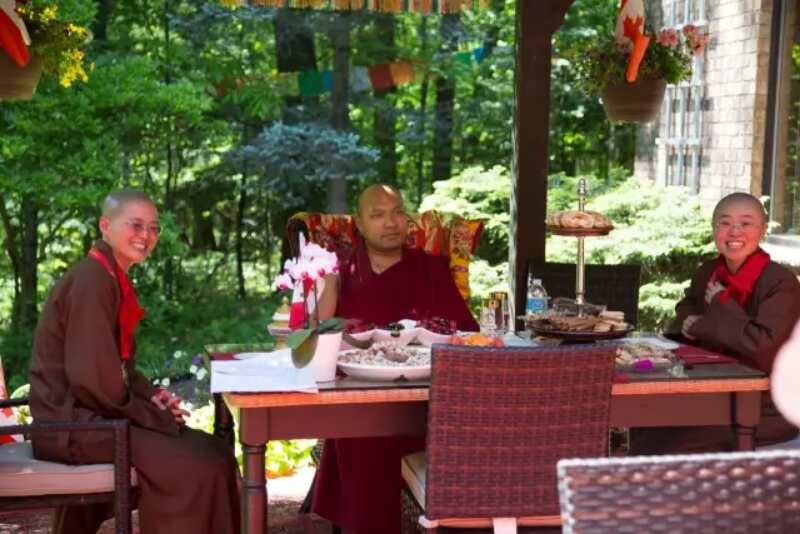
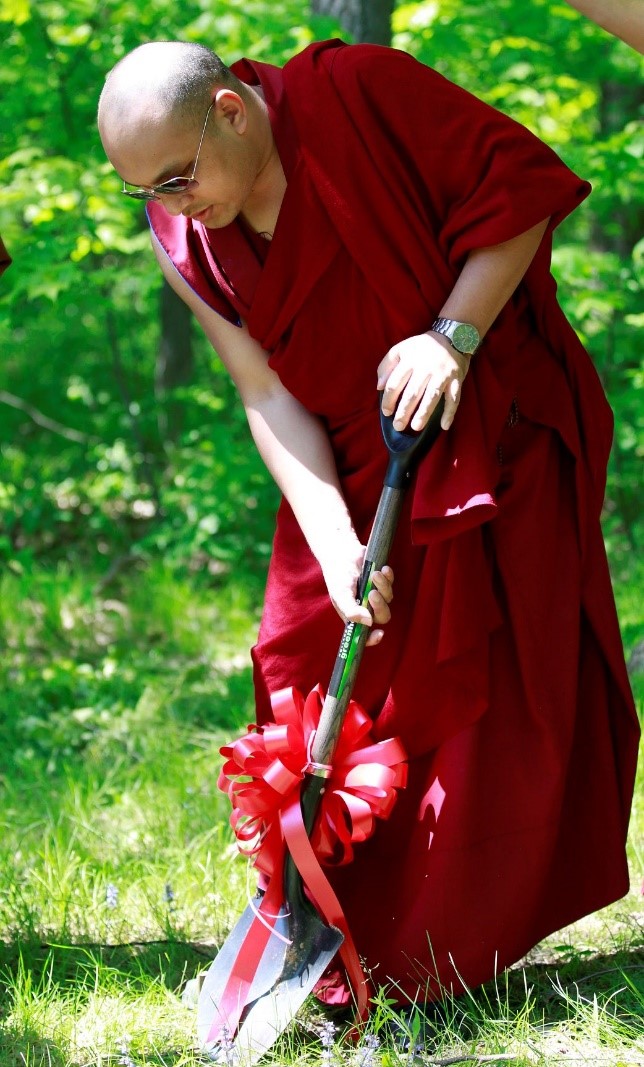
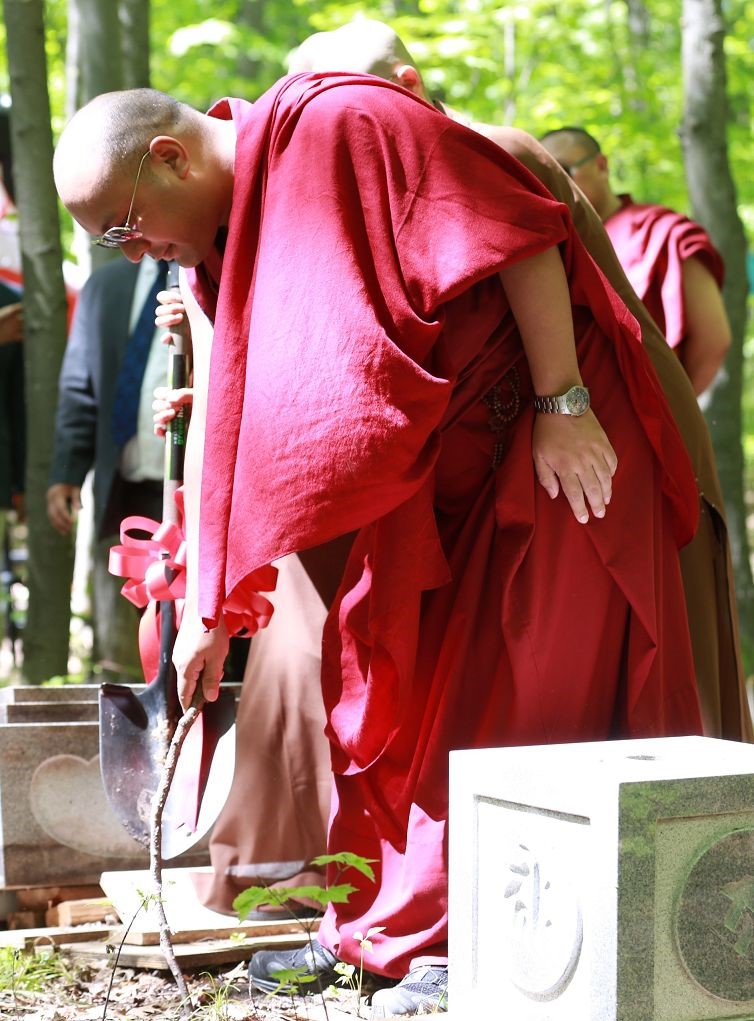
Karmapa Chenno!
